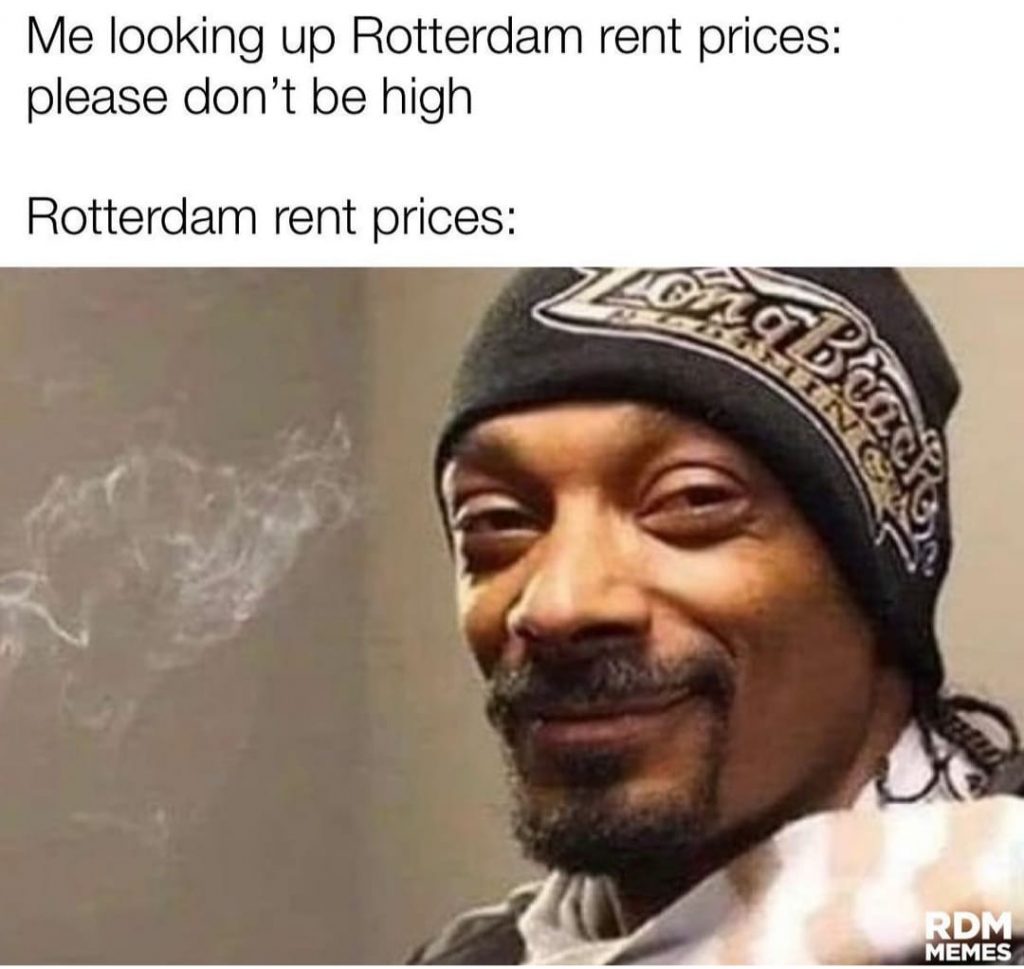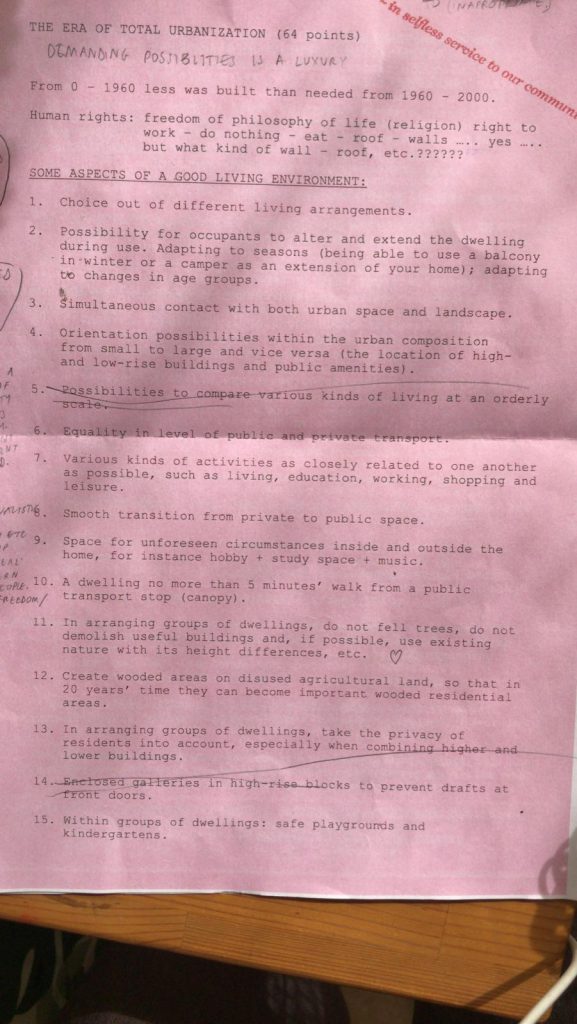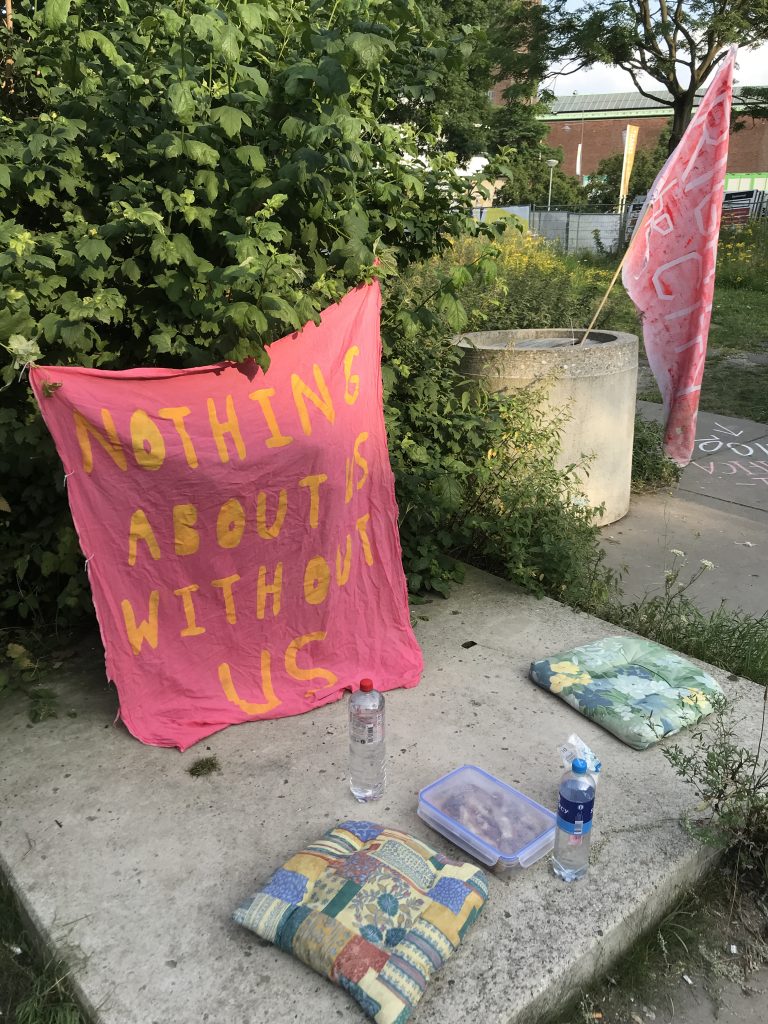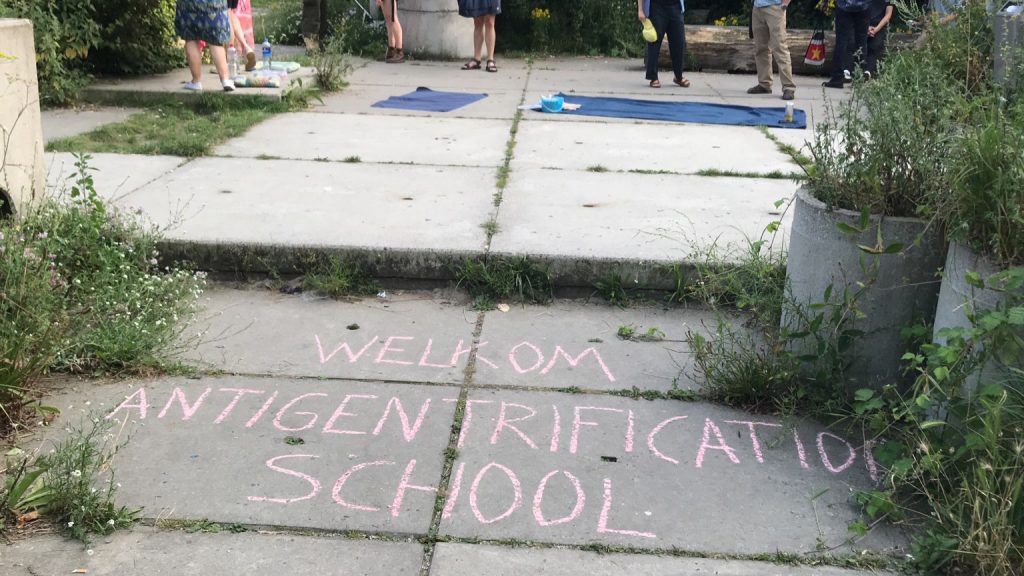#4 HOMES FOR PEOPLE NOT PROFIT
Wednesday 21st July
19.00-21.00
De Nieuwe Tuin, Jongkindstraat 5, 3015 CG Rotterdam (the garden next to Het Nieuwe Instituut)
This week we met in De Nieuwe Tuin (soon to be replaced by a new park) together with Nienke Terpsma & Rob Hamelijnck (Fucking Good Art) who put together the archive HOMES FOR PEOPLE NOT PROFIT for Rotterdam Cultural Histories #19 currently on show at the shared space between TENT and Melly. Their presentation explores alternatives to the dominant forms of ownership and the market-driven housing policy from the ’60s until now taking as a central document Jaap Bakema’s text “the era of total urbanisation (64 Points)” written in 1971. Following Bakema’s invitation to improve on his list, we did a collective choral reading that staged a conversation between this text and our voices. We spoke about infrastructures of commoning as well as the role that architects, “creatives”, planners and citizens have in making them a reality. How can we nurture community and shared ownership with our practices, actions, ways of living?
We were joined by Frank Bruggeman and Hans Engelbrecht, the designers of the garden who spoke about how it arose as temporary project with an ecological approach.The garden has now been at the site for 6 years, taking on a variety of roles in the day and night time. The plan for the future of the space is to open it up, making clearer sight lines so that “unwanted behaviour” can be observed and controlled, an attempt to curb drug taking, drinking and visible homelessness. We were also joined by activists supporting the campaign to save the Museum Park, which calls to protect a well used space for skaters. The redesign of museum park means that surfaces and furniture is unsuitable for skating (currently the main use of this part of the park) a “greenification” which pushes out people who use the space already.
Nienke and Rob spoke about their archive which emerged from research on cooperative housing in Switzerland, questioning why isn’t this way of living currently possible in Rotterdam? Why can’t people without capital build and live together here? The Gemeente addresses this through its own scheme and is currently piloting a way of doing cooperative housing in the city that ignores all of the work that actors are already doing and have done to develop cooperative housing strategies.
They explain that in the 70’s there was a moment similar to now in which activists, citizens and academics came together to fight for better and fairer housing in the city and were successful with many of their demands. Currently we’re in a moment where citizens don’t get a say in their own housing situation, slowly the pressure is building and this week it was announced that wethouders acknowledge that more citizen participation is necessary when neighbourhoods are being redeveloped, renovated and demolished. It is suggested that Rotterdam as a city seems to be mainly concerned with short terms projects (“The city of permanent change”), tests and experiments yet cannot think long term enough to make lasting meaningful changes to its housing policy or to ensure ‘other ways of living’ are possible for its citizens.

In the context of the garden, we spoke about how we feel (or don’t feel) rooted in our own neighbourhoods or housing situations. Is it through connections to our neighbours? Is it stability in terms of knowing we won’t get thrown out, moved on, or the rent rising? How does a lack of rootedness affect how we feel or behave towards our neighbourhood? How do we nurture roots despite instability?
We read Jaap Bakema’s text, shouting out certain statements in agreeance or whispering statements we didn’t feel any passion for.
“EVERYONE POSSESSES SOME BASIC SENSE OF WHAT TO HIM IS A FITTING SPACE, BUT HE HAS OFTEN BEEN DISCOURAGED FROM USING IT”
One comment resounded… Demanding such possibilities (as in Jaap Bakema’s text) seems a luxury for those who are focussed on surviving…
Resources/Links:
- De Nieuwe Tuin
- Rotterdam Cultural Histories # 19: Homes for People, Not for Profit – Fucking Good Art
- Fucking Good Art
- Rotterdam wil niet meer slopen zonder overleg: ‘Mensen hebben het gevoel te worden weggejaagd’
- Save Museumpark!
- Nieuwbouw-paniek! Massih Hutak for De Groene Amsterdammer
- Kunstwerk in Crooswijk moet discussie over woningnood levend houden – artwork by Judy van Luyk in Crooswijk


